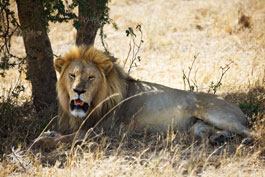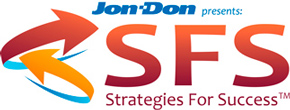 It’s a jungle out there for carpet cleaning and restoration companies trying to make a living. How fine-tuned are your survival skills? Here’s a tip, don’t get too comfortable.
It’s a jungle out there for carpet cleaning and restoration companies trying to make a living. How fine-tuned are your survival skills? Here’s a tip, don’t get too comfortable.
When I was growing up, a popular program on television was Mutual of Omaha’s Wild Kingdom with Marlin Perkins. Maybe you remember it as well. Each week Marlin treated us to vivid pictures of life in the wild and tales of survival of the fittest on the Serengeti.
One thing that still stands out in my mind, even after all these years, is how “efficient” nature is. A lion chases down and kills a wildebeest. (Lots of work on the part of just one lion.) All of the other lions in the pride enjoy the meal of fresh meat. (No work- very efficient for the rest of the pride.)
Once the lions have feasted and leave, the hyenas take their turn with the carcass. (No effort expended in the kill- very efficient.) When the hyenas are full, the vultures that have been patiently hovering overhead descend on the carcass and pick the bones clean. (Once again- efficiency at its finest!)
With good reason “doing business” has frequently been referred to as a “jungle”. Competition in residential carpet cleaning, commercial maintenance cleaning and disaster services restoration certainly evokes a survival-of-the-fittest environment! And, as you might expect, there is a condition in all small service businesses quite similar to the “feeding-off-the-carcass” scenario that takes place in the wild … albeit with one major variation. In nature, “feeding off the carcass” is a good thing. However, this “carcass feeding” concept for your business may very likely spell disaster!
In business the “carcass” can take on several different forms. Sometimes it’s a big, profit-rich maintenance cleaning job; other times simply a highly profitable month of add-on sales. Or if you are in the restoration business, it can be an abundance of jobs brought on by heavy weather. It might even be an exceptionally profitable year. Nothing wrong with any of these great scenarios except …
The temptation is for the owner of the service business to abandon their competitive instincts and coast for a while as they feed off this “carcass of profits”. Here’s what usually happens. We get so busy chasing down the sale that when we finally make the kill, we get complacent and stop doing the things that led to the sale in the first place.
 Then we bring out the litany of excuses we have down pat: “I’m too busy to….” “I’m too tired to….” Frequently, what we’re really saying is, “I can coast awhile.” We figure, “Why not? There’s this big fat carcass I can feed off.” So where is the problem?
Then we bring out the litany of excuses we have down pat: “I’m too busy to….” “I’m too tired to….” Frequently, what we’re really saying is, “I can coast awhile.” We figure, “Why not? There’s this big fat carcass I can feed off.” So where is the problem?
If we’re not careful this getting “fat and lazy” syndrome can lead to a feast-or-famine cycle. We feed off the fat profit until it’s all gone. Then, faced with our very survival, we desperately chase the next sale. Then we go through the same cycle again. This tendency occurs in big businesses, as well as small. After recognizing a similar cycle at world automaker Daimler-Chrysler, one of its executives recently remarked, “Every time we get successful, we get stupid.”
So, here are two tips to help you avoid the “feeding-off-the-carcass” syndrome in your cleaning / restoration operation.
Focus on your fundamentals. Keep doing the things that led to the big job or increase in profits in the first place. Ignoring your business fundamentals is like taking your foot off the accelerator in your car. Eventually things slow down to a stop.
View the carcass as “plus money.” Getting a cleaning big job isn’t going to solve all your problems. Go about your activities as if you don’t have the job. Keep your company lean and always in the hunt…even when you’ve just bagged a big one. Remember that your sales cycle is much longer than the kill cycle for a hungry lioness!
So keep in mind that if you rely on feeding off the carcass (rolling in the easy money) rather than finding new kills (maintaining your marketing and sales systems), eventually there will be nothing left to eat, and your instincts may be dulled. Plus, as any lion will tell you- it’s always better to start the hunt before you’re starving!
Chuck Violand (more about Chuck)
SFS Instructor
CEO Violand Management Associates
